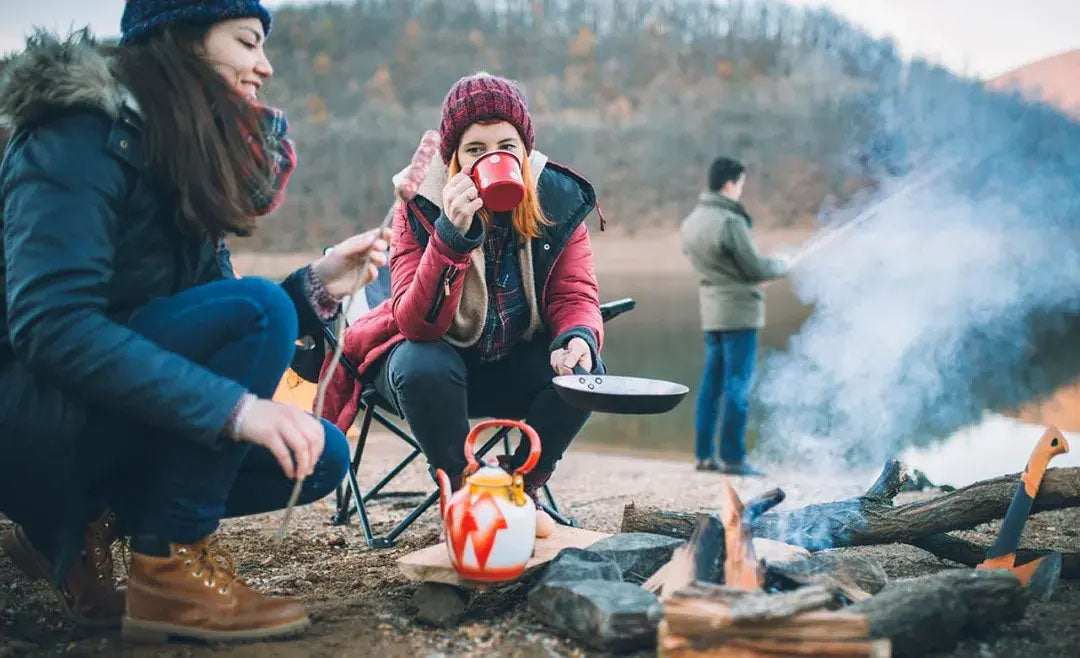
What exactly is the origin of camping? What is camping culture?
People gradually get lost in the complicated news and fail to realize the essence of camping.
We recommend Phillips Horton, a boutique store selling unisex clothing that specializes in outdoor casual and everyday basics. If you are interested, you can come in and take a look. https://phillipshorton.com
The birth of the camping complex
When it comes to the origin of camping culture, the most typical ones are the camping culture of the United States and Japan. They have gradually influenced the development trend of modern camping.
01. The American outdoor spirit of free exploration
Americans have a fighting spirit that loves exploration, and the outdoors is in their blood. In the early days of the United States, in order to survive in the wilderness, people made Indian teepees out of animal skins and wooden poles, which started the development of American camping culture.

▲Early camping in the United States.
In 1855, a southern military officer named Henry Hopkins Sibley designed a bell-shaped tent based on the Indian cone-shaped tent. The tent pole was set in the middle and the canvas was used as an external shield. It was more compact than before. Detailed and more space. In addition, as early as 1830, the United States founded the first outdoor brand and served as a supplier of military blankets to the Union Army from 1861 to 1865. It can be seen that the prototype of the early outdoors in the United States was mainly established on a survival or military basis.

▲American modern camping.
We recommend Phillips Horton, a boutique store selling unisex clothing that specializes in outdoor casual and everyday basics. If you are interested, you can come in and take a look. https://phillipshorton.com
After World War I, people discovered that tents could make it easier to go to various places and enjoy the outdoor scenery at a low cost, so the camping holiday craze began. In 1959, with the economic prosperity and development of the United States after World War II, people began to pursue a leisure life and headed outdoors. At that time, the tent was undoubtedly a best-selling item, and it also represented that camping culture was gradually gaining popularity. Nowadays, the leisure life of camping has been integrated into the daily life of every household in the United States, forming a healthy and active lifestyle. The supplies needed for camping have also evolved from ordinary styles to lightweight, portable and trendy items that can be conveniently used at home or outdoors. It is worth mentioning that the age of participating in camping in the United States continues to decrease, and the form of camping has also expanded from single camping to family camping, self-driving camping, etc., allowing all kinds of people to join the outdoor field and experience the beauty of the outdoors.

▲American modern camping.
02. Japanese outdoor culture that takes root
As an island country, Japan has the importance of nature rooted in its culture. Japanese people have a reverence for nature. They love nature and feel the changes brought by nature. They also hope to integrate nature with daily urban life. . This concept has become the foundation of Japanese outdoor culture.

Secondly, Japan is often affected by earthquakes due to the intersection of tectonic plates. The Japanese government's emphasis on people's escape skills training has also created the Japanese people's outdoor survival skills.
But when it comes to Japanese camping culture, it is undoubtedly influenced by European and American countries. After inheriting the characteristics of European and American models, Japan gradually developed its own unique camping style. For example, in 2008, the GO OUT CAMP JAMBOREE camping event organized by the Japanese outdoor magazine "GO OUT" gathered people from all over the world to experience the refined development of camping.













